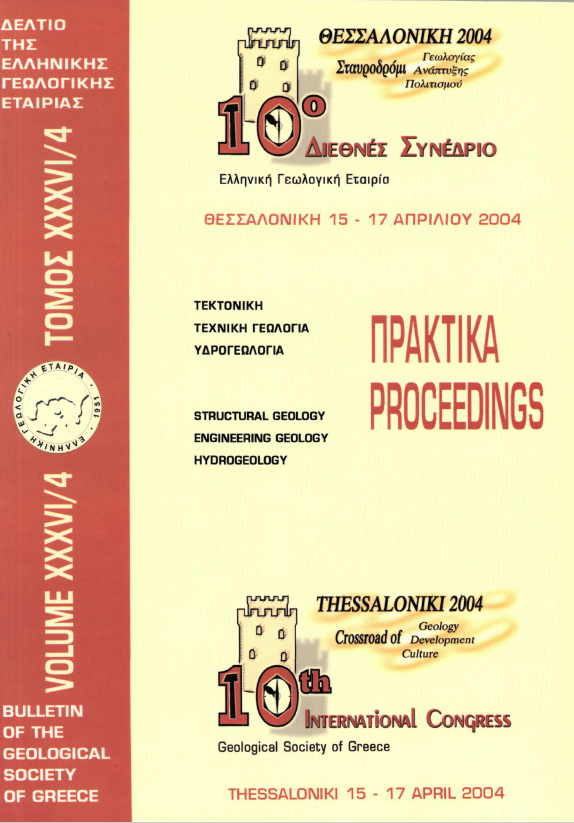WATER MANAGEMENT AT ATHENS INTERNATIONAL AIRPORT A CRITICAL APPROACH
Résumé
The new Athens International Airport "Eleftherios Venizelos" (AIA) has been constructed in the
heart of the Mesogaia plain, approximately 25 kilometres northeast of Athens. The airport, which
has been constructed on agricultural land that was once used for the cultivation of vegetables,
fruits, olives, and other fresh products, commenced operations in March 2001.
The Environmental Department (ENC) of AIA was established from the first day of the company's
operation in summer 1996. The responsibilities of ENC are related to the Environmental
Management System, aircraft noise, air quality, resources monitoring, water management, natural
environment, waste management, cultural heritage, and community projects. AIA is the first Hellenic
airport, with an Environmental Department that has been certified according to EN ISO 14001
since December 2000.
The airport and the activities directly and/or indirectly associated with its operations can have an
environmental impact on water. In order to avoid such impacts, ENC closely monitors and takes initiatives
regarding several water issues including: Ground water, Surface water & Potable water
Monitoring.
The purpose of this paper is to provide detailed information regarding water management issues,
especially those related to monitoring programs. Several such programs are conducted on a
regular basis (some having commenced even prior to airport operations, e.g., groundwater and surface
water) where the different water media are sampled, sent to accredited laboratories, analysed
for a selected suite of parameters, and checked for environmental compliance. If any of the waters
tested are in non-compliance then a series of corrective measures are initiated
Groundwater sampling and analysis have been conducted on the airport site prior to airport
opening. Results indicate that the parameters observed in exceedance to European legislation are
attributed to agricultural practices that were prevalent prior to the airport construction rather than
from airport operations
Surface water sampling has been conducted on the site since airport opening. The selected
suite of parameters tested from specific locations show that no systematic elevated levels have
been recorded. The initiatives of ENC, including training, environmental auditing of Airport's Third
Parties, and remediation measures, have contributed to this outcome
The results from the potable water sampling and analysis, which is conducted in cooperation
with EYDAP, indicate that water quality is in compliance with Greek legislation.
This paper will be of interest to researchers, practitioners, and policy-makers, since it provides
useful information regarding the design, implementation, and outcome of water monitoring programs.
Article Details
- Comment citer
-
Chilakos, P., & Kavouras, C. N. (2004). WATER MANAGEMENT AT ATHENS INTERNATIONAL AIRPORT A CRITICAL APPROACH. Bulletin of the Geological Society of Greece, 36(4), 2094–2101. https://doi.org/10.12681/bgsg.16709
- Rubrique
- Hydrology and Hydrogeology

Ce travail est disponible sous licence Creative Commons Attribution - Pas d’Utilisation Commerciale 4.0 International.
Authors who publish with this journal agree to the following terms:
Authors retain copyright and grant the journal right of first publication with the work simultaneously licensed under a Creative Commons Attribution Non-Commercial License that allows others to share the work with an acknowledgement of the work's authorship and initial publication in this journal.
Authors are able to enter into separate, additional contractual arrangements for the non-exclusive distribution of the journal's published version of the work (e.g. post it to an institutional repository or publish it in a book), with an acknowledgement of its initial publication in this journal. Authors are permitted and encouraged to post their work online (preferably in institutional repositories or on their website) prior to and during the submission process, as it can lead to productive exchanges, as well as earlier and greater citation of published work.



